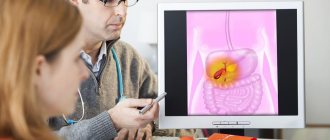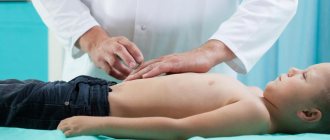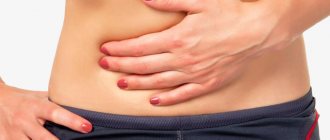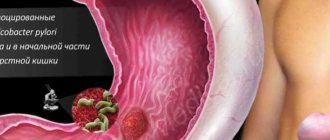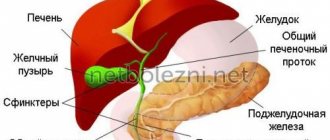Home>Articles>When can you drink alcohol after appendicitis?
quick menu (hide)
- The patient's condition after removed appendicitis
- When is it legal to drink alcohol?
- Why is alcohol contraindicated?
- Consequences of drinking alcohol
During appendicitis, an appendectomy is performed. This is a simple surgical intervention to eliminate an inflamed appendix. Previously, the operation was performed using abdominal surgery, after which the patient’s rehabilitation continued for a long time with some restrictions. When using laparoscopy to eliminate the inflammatory segment, less damage is caused to the person, and the rehabilitation period is significantly reduced.
First, after the intervention, you need to adhere to a special diet , avoid physical activity and drinking alcohol. Many people ask: when can you drink alcohol after appendicitis and how much? After a few days of recovery, all restrictions are lifted. only prohibited to take a hot bath for 2-3 weeks.
The condition of a person after removed appendicitis
Each intervention is a severe stress for the body. Doctors do not allow you to lie down for a long time. Especially if there are no complications during the operation, doctors force patients to get up and move around 4-6 hours after anesthesia. But you should not be excessively active so that adhesions do not appear in the seam area.
After 2-3 days from the operation, the person is usually discharged home, where he needs to stay for several more days, making dressings. If healing is normal, the stitches are removed.
Over the course of several weeks, a person must fulfill the following requirements:
- do not lie down for a long time, do housework and move independently;
- eliminate overvoltage;
- eat light foods without overloading your stomach.
Prohibited Products
First of all, in order to prevent the divergence of intestinal sutures, foods that cause fermentation in the intestines and increase gas formation are excluded from the diet.
Also not allowed are products that increase the secretion of the stomach and pancreas, irritate the mucous membranes of the stomach and duodenum, which provokes spasm of the smooth muscles of the intestine and prevents normal wound healing. These include:
- spices;
- organic acids;
- excessively salty food;
- dishes that contain large amounts of essential oils and extractives.
It is unacceptable to consume coarse fiber, as it stimulates the motility of the damaged intestine, interfering with its healing. In the days after surgery, you need to stop taking fiber altogether, and then gradually expand your diet.
Refractory fats are excluded: a large amount of energy is required to break them down, and since the body is weakened by the operation, they linger in the digestive tract for a long time, increasing the load on it.
Drinks that stimulate the central nervous system are contraindicated. A categorical ban is imposed on the consumption of semi-finished products and fast food due to the high content of chemical compounds E-additives, which are toxic.
The list of prohibited products is quite long:
- bread, especially rye and fresh, all baked goods;
- fatty meats (pork, lamb), meat with fascia and stringy;
- fatty poultry and fish (goose, duck, mackerel, salmon, greenling);
- strong rich broths, soups made from them;
- sausages and sausage products;
- canned food, smoked meats, lard;
- marinades and pickles, spicy snacks;
- candies, chocolate, cakes with creams, ice cream;
- fast food;
- carbonated sweet drinks, strong tea and coffee;
- all spices (mustard, horseradish, vinegar, pepper, coriander, suneli hops and others);
- milk and sour dairy products with high fat content (sour cream, kefir, cottage cheese, especially cottage cheese);
- sharp, fatty and salty cheeses;
- legumes;
- pasta;
- sauces (tomato, mayonnaise);
- cereals as a side dish;
- hard-boiled and fried eggs;
- mushrooms;
- sour fruits and berries;
- vegetables with coarse fiber (white cabbage, turnips, radishes, sorrel, spinach, radishes, kohlrabi, turnips).
When is alcohol allowed after appendectomy?
To the question: when can you drink alcohol after appendectomy? Experts agree that appendectomy almost does not limit the use of alcohol. not to drink at all during rehabilitation . , dangerous consequences for the body can occur
To prevent infection through sutures, doctors prescribe antibiotics as a preventative measure. It is forbidden to combine alcoholic drinks with them, which is why you cannot drink for several weeks.
Authorized Products
Therapeutic nutrition after appendectomy is expanded gradually. The patient must receive the required amount of proteins that are needed for cell construction and regeneration.
It is important that complex carbohydrates are present in food, but in a processed form: they create a glycogen depot in the liver, which supports its disinfecting function.
Food should be easily digestible, not overload the digestive organs and smoothly activate the gastrointestinal tract. Also, the diet should be rich in vitamins, especially ascorbic acid, which stimulates the immune system and speeds up the healing process.
List of permitted products:
- yesterday's bread or dried bread, dry cookies from the 3rd day;
- lean meats and poultry from the 3-4th day, twice through a meat grinder or pureed, soufflés, meatballs, steam cutlets, without connective tissue membranes and tendons (beef, veal, skinless chicken, rabbit, turkey);
- low-fat varieties of skinless fish, mainly river fish, as a substitute for meat dishes;
- slimy and viscous porridges (semolina, rice, oatmeal, pureed buckwheat);
- weak strained broths from chicken and lean meat;
- slimy soups made from oatmeal and semolina, you can add cream or a milk-egg mixture, from the 4th day - pureed vegetable soups (from zucchini, pumpkin, carrots, beets, potatoes);
- soft-boiled eggs or steam omelet;
- low-fat milk from days 3-5, pureed cottage cheese, yogurt;
- compotes, jelly, souffle, jelly from sweet berries and fruits;
- honey, jam, sugar;
- unsalted butter, vegetable oils;
- weak tea with milk, decoction of rose hips and medicinal herbs, diluted juices.
Reasons why alcohol is contraindicated after appendicitis
It is worth noting several reasons why is unacceptable after appendicitis. These include:
- Changes in cellular metabolism. Ethanol enters the cells through the blood, having a bad effect on their healing. Violation of regeneration in internal seams is considered more dangerous;
- Inadmissibility when taking antibiotics . After completing the treatment course, 1-2 days or more should pass until the medicine is completely removed from the body;
- Irritation. If you consume alcohol after having your appendix removed, you may experience inflammation from inside the intestine where the appendix was removed;
- Loads on the liver . After any surgical intervention, stress is observed on the liver, which can cause cirrhosis and other diseases of the organ during rehabilitation;
- Increasing inflammatory process. Inflammation increases from all alcoholic drinks , so if a person drinks a large amount, difficulties may arise with tissue overgrowth;
- Decreased immune protective functions. During toxic poisoning, the body does not maintain the full functioning of the immune system, so after surgery you can easily get sick .
Narcosis and alcohol
Patients are often interested in:
- “Is it possible to drink alcohol before surgery, for example mammoplasty, before anesthesia?”
- “How does alcohol affect the administration of anesthesia (“will he or will not take anesthesia?”, “how will it work?”)″.
- “When can you start drinking alcohol after anesthesia and the operation itself?”
These issues become most relevant during the New Year holidays, when it is time for corporate events, but also the peak of operational activity, because... Many patients plan to undergo surgery and recover during the New Year holidays, and they do not refuse to celebrate.
To understand the main essence of the issues, it is necessary to distinguish between the concepts: “chronic alcoholism (chronic, long-term alcoholization)” and “acute alcohol intoxication”, as well as “withdrawal syndrome”.
With chronic alcoholism, in the initial stage of alcoholism (the first years of use), the production of liver enzymes is stimulated, i.e. the liver works more actively, destroying alcohol and anesthesia drugs; accordingly, tolerance (immunity, resistance) arises both to alcohol and to doses of anesthesia drugs, which requires increased dosages of anesthesia drugs. Chronic alcoholics have a high probability of experiencing pronounced psycho-emotional arousal during induction of anesthesia (when entering anesthesia). In the later stages of alcoholism (7-10 years or more), a decrease in liver function and the activity of its enzymes occurs, because liver diseases develop - fatty degeneration and cirrhosis, respectively, tolerance to alcohol and to drugs for anesthesia decreases, so smaller doses of drugs for anesthesia are required. The doctor must carefully dose the medications based on clinical manifestations, etc. Recovery from anesthesia in such patients is protracted and alarming.
It should be noted that in chronic alcoholics, especially in the later stages of the disease, all vital systems of the body, metabolism and immunity suffer. Which also causes concern for the anesthesiologist-resuscitator when administering anesthesia to alcoholics.
In acute intoxication, alcohol potentiates the effect of anesthetic drugs, thereby enhancing their effect, which more strongly depresses the central nervous system (since the deactivation of drugs in the liver is reduced), and alcohol also causes depression (suppression) of the heart myocardium and dilates peripheral vessels, which increases hypotension, and accordingly, a decrease in blood pressure (blood pressure), and this requires intensive treatment. Moreover, recovery from anesthesia will be more difficult, and the development of post-anesthesia delirium (“delirium tremens”) is possible. Therefore, I do not recommend drinking alcohol before anesthesia and surgery in less than a day, but it is better to give up alcohol a few days before the upcoming mammoplasty under general anesthesia.
Withdrawal syndrome (from the Latin “abstinence”) or withdrawal state occurs when alcohol intake is completely stopped after prolonged, repeated or high-dose single consumption of alcohol. This condition is manifested by increased excitability, up to disorientation and hallucinations, tachycardia (increased heart rate), arterial hypertension (increased blood pressure), disturbances in heart rhythm and hemodynamics, and all this occurs against the background of metabolic disorders of the body and electrolyte imbalance (K, Na, Cl, Ca , Mg, etc.). All these changes require intensive treatment, where the administration of anesthesia drugs is only the 20th part of the work of an anesthesiologist-resuscitator, i.e. the administration of anesthesia itself is intensive therapy (fast and potent drugs are used, all through intravenous administration, etc., etc.), and even more so when administering anesthesia to patients intoxicated.
Patients also ask: “When can you start drinking after anesthesia and the operation itself?” If we talk about non-alcoholic drinks, then I allow drinking as soon as the patient’s consciousness, cough (protective) reflex, and adequate muscle tone have been restored. Well, this is obvious so that the patient understands what he is drinking, can hold the mug, and most importantly, so that he can clear his throat so as not to choke. Recovery occurs over a period of time: from several minutes to a couple of hours - it all depends on the type of anesthesia and its duration, as well as on the volume and severity of the operation. Everything is individual. For some, 10-15 minutes is enough, and for others, 1-2 hours is not enough. In any case, there must be clear indications for “offering a drink of water” to the patient. The same applies to eating solid food: as the patient recovers, we offer him to eat if he wishes.
Well, in conclusion, another frequent question: “When can you start drinking alcohol after anesthesia and surgery?” Modern drugs for short-acting anesthesia are quickly eliminated from the body, but the products of their metabolism (processing in the liver) can remain in the blood for up to a day, therefore, if you are “unbearable”, then at least a day after anesthesia you can consume alcohol, or better yet, a few days later .
Be healthy. Take care of your liver. Good luck!
Author: Anesthesiologist-resuscitator M.V. Bakaushin
Consequences of drinking alcohol after appendectomy
If you drink alcohol after appendicitis removal, unpleasant consequences may occur. The most popular is the development of liver failure or cirrhosis . In the acute form of failure, death can occur due to liver overload and untimely medical care.
Therefore, after appendicitis removal, you can answer when you can drink alcohol. In the first days, you should stop taking it, when a person is unable to fall asleep due to unpleasant sensations. You also need to abstain from it later, wait until the course of medication is completed, and get permission from your doctor.
The patient should remember that it may take at least a week for drugs to be eliminated.
Acute appendicitis
The first sign of acute appendicitis is severe pain in the abdominal cavity.
Initially, it may hurt around the umbilical ring, in the upper abdomen, gradually descending into the right iliac part of the peritoneum. In exceptional cases (due to the unusual location of the appendix), pain can be observed in the lower back, in the area of the liver and kidneys, on the left side of the abdomen.
Body temperature also rises, nausea is observed, and vomiting is possible. There is general weakness of the body and fatigue. Analgesic drugs are not able to eliminate pain; it is imperative to contact a medical facility by calling an ambulance for emergency surgery.
Hospital after surgery and alcohol
Even taking into account the simplicity of the operation, many organs and systems suffer after appendicitis. The body is overloaded, is in a stressful situation, alcohol will aggravate the situation.
After the operation, the patient remains in the hospital for 3 to 10 days. Specialists monitor your health and monitor the development of possible complications. After discharge, the patient is given a leaflet containing recommendations for nutrition and physical activity. Drinking after surgery is strictly forbidden (including low-alcohol drinks such as beer)!
Removal of fibroids: rehabilitation after surgery in
The health, well-being and mood of our patients is our main value. That is why we provide them with all the conditions to achieve the desired results. Our center employs professional doctors who regularly improve their skills. We adhere to an individual multidisciplinary approach: all procedures are selected depending on the health indicators of each individual patient; not only rehabilitation specialists, but also doctors of other subspecialties participate in decision-making. This is the only way we can choose the optimal course of procedures. Our center is equipped with modern simulators and devices that have proven their effectiveness. The friendly atmosphere and cozy rooms make you feel comfortable. Good mood and positive attitude play a big role in recovery, so we have created a pleasant microclimate, and professional psychotherapists with extensive practical experience work with patients.
What not to do after abdominal surgery to remove fibroids
Patients are interested in what can and cannot be done after surgery to remove uterine fibroids. Rehabilitation usually consists of the procedures and recommendations described above. The main thing is to listen to your doctor and take care of your health. The early period is considered the most important: a number of restrictions are caused by the fact that the wound has not yet healed completely and there is a risk that the stitches will come apart. For this reason, you should not overexert yourself; loads are allowed, but they must be moderate. It is recommended to take a shower instead of a bath to avoid infection.
